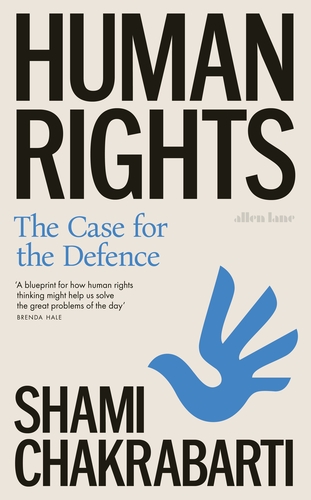We will be closed from 5pm Thursday 17th April for the Easter Bank Holidays, re-opening at 8.30am on Tuesday 22nd April. Any orders placed during this period will be processed when we re-open.

A powerful and urgent explanation and vindication of our human rights and freedoms.
After the devastation of World War Two, the international community came together to enshrine fundamental rights to refuge, health, education and living standards, for privacy, fair trials and free speech, and outlawing torture, slavery and discrimination. Their goal was greater global justice, equality, and peace. That settlement is now in danger, attacked by opponents from across the political spectrum and populist and authoritarian movements worldwide. We are threatened by wars, inequality, new technologies and climate catastrophe, and we need our human rights now more than ever. In this powerful, accessible book, Shami Chakrabarti, lawyer, parliamentarian and leading British human rights defender, shows us why human rights are essential for our future.
Outlining the historic national and international struggles for human rights, from the fall of Babylon, to the present day, Chakrabarti is an indispensable guide to the law and logic underpinning human dignity and universal freedoms. Her intervention will engage both sceptics and supporters, equipping believers in the battle of ideas and persuading doubters to think again. For human rights to survive, they must be far better understood by everyone.
A fierce and thoughtful answer to those who thoughtlessly criticise the whole idea of human rights and its core values of dignity and equality - but also a blueprint for how human rights thinking might help us solve the great problems of the day - cyberspace and AI, armed conflict and climate change - and give democracy a future. - Brenda Hale
The threat to human rights is ever increasing and the practical way this book informs us is commendable. The book gives us a road map of what we are facing that is easy to understand. People across the world face more conflict than ever. Wars that have nothing to do with ordinary people going about their daily lives come from the governments that are supposed to protect them. The book is worth reading. - Doreen Lawrence